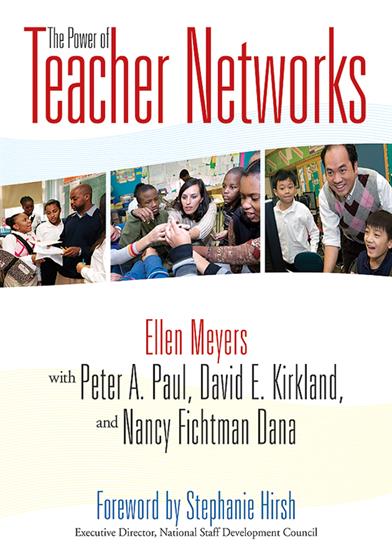Hands-on, Practical Guidance for Educators
From math,
literacy, equity, multilingual learners, and SEL, to assessment, school counseling,
and education leadership, our books are research-based and authored by experts
on topics most relevant to what educators are facing today.

The Power of Teacher Networks
Foreword by Stephanie Hirsh, Executive Director, National Staff Development Council
Foster high-quality teaching and leadership through teacher networks!
This step-by-step guide illustrates how to create, manage, and sustain a teacher network or grow an existing one, and provides a model developed by The Teachers Network. The book includes teacher vignettes, information about managing a network, and a wealth of worksheets, tools, and resources to get you started. Practical guidelines demonstrate how networks can:
- Support new teachers, reduce teacher isolation, and increase retention rates
- Share the benefits of collaborative group work, including action research
- Enhance professional practice and nurture teacher leaders
- Connect teachers to the ideals that drew them into education
- Grade Level: K-12
- ISBN: 9781412967174
- Published By: Corwin
- Year: 2009
- Page Count: 144
- Publication date: December 05, 2012
Review Copies
Review copies may be requested by individuals planning to purchase 10 or more copies for a team or considering a book for adoption in a higher ed course. Request review copy




